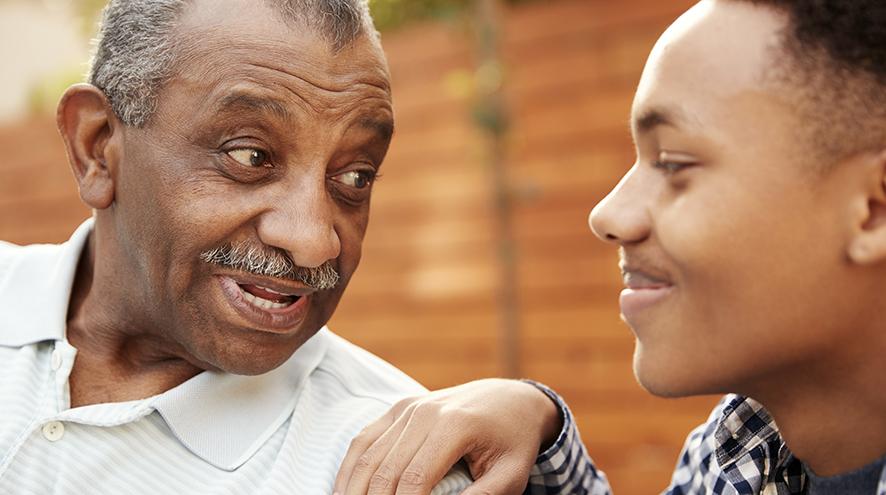Holidays and special occasions
For some of us, holidays or other special life events can be stressful, particularly if you are a caregiver or a person living with dementia. But there are also benefits to connecting. Here are some ways to manage challenges.

Living with dementia or caregiving — as well as the ongoing pandemic — can present new ways of thinking about holidays and celebrations.
The good news is that it can still be possible to be a part of significant moments with friends and family, to celebrate people and relationships.
As you line up events — whether holiday parties, weddings, birthdays, or even funerals — remember to plan early, set realistic expectations, follow local public-health guidelines and simplify your plans.
Here are tips for engaging in holidays and events.
Overall holiday and occasion tips
- Follow advice from your local public health authority.
- If you can't join in person, consider a video chat or phone call if that works for the person living with dementia.
- Also consider an all-virtual celebration if that works for everyone.
- Celebrate only the occasions and traditions that are most important to you, your family and friends.
Timing and scale tips
- Keep celebrations short. At longer gatherings, consider attending for only the most meaningful part of the event.
- Plan festivities on a day and time that suits the person or people with dementia.
- Plan smaller get-togethers. This will minimize stress and feelings of being overwhelmed.
- If meeting in person, include a quiet area where a person can be alone if needed. Offer to sit with them to help them feel comfortable.
- If meeting online, consider time or flexibility for screen breaks.
Place and technology tips
- If meeting in person, choose familiar places for events to help avoid confusion.
- If meeting online, try to use familiar technology that automatically displays attendee names.
- Consider meeting outdoors if people are not comfortable meeting indoors.
- If meeting indoors, open windows and screen doors as much as possible for related ventilation.
Participation tips
- If you are a person living with dementia, do try to think about what you would most like to do for preparations and communicate that if possible. Some people like stirring batter, making cards, choosing music or wrapping gifts, but there are many other options.
- If you are a caregiver, do make sure to involve the person living with dementia in preparations. Include them in tasks they can do or enjoy.
- Keep everyone's favourite foods in mind, while also being mindful that too much rich food can result in discomfort.
- If gifting is part of the celebration, make sure everyone is included in gifting.
- Do things that have meaning such as looking at old family photographs or singing favourite songs.
Self-care tips
- Don’t overdo it. It may be tempting, as either a caregiver or a person living with dementia, to do everything or try to keep traditions from previous years going. But it’s really important to slow down and take time for yourself.
- Ask a friend or family member to help with shopping or cooking — and don’t refuse help if it’s offered!
- Assign specific tasks to your friends and relatives.
- Adjust your priorities and expectations. How urgent is this?
- Recognize the important work you do and how much you mean to the person you’re caring for, or the person who cares for you.
Other tips
It’s also a good idea during the holidays to make a list of doctors or walk-in clinics and pharmacies that are open in case of an emergency. And if you or another person is on medication, make sure you and/or they have enough to get through the times when stores may be closed.
Emotionally, special occasions can bring up feelings of joy or sadness. Try to accept the feelings that come up for you and others.
If a celebration reminds a person with living dementia of events from the past, they may speak of people and things from that time. Rather than trying to make the person aware of current events, talk about a past event and memories of similar occasions.
Remember: changing abilities or dementia do not alter change person's importance in the family or the need to be included at special events.
And also know that you’re not alone. Call your local Alzheimer Society if you need to talk to someone who understands the stress you’re feeling.
This webpage was last updated on December 15, 2022. If you have comments, questions or concerns about this webpage, please contact publications@alzheimer.ca.
